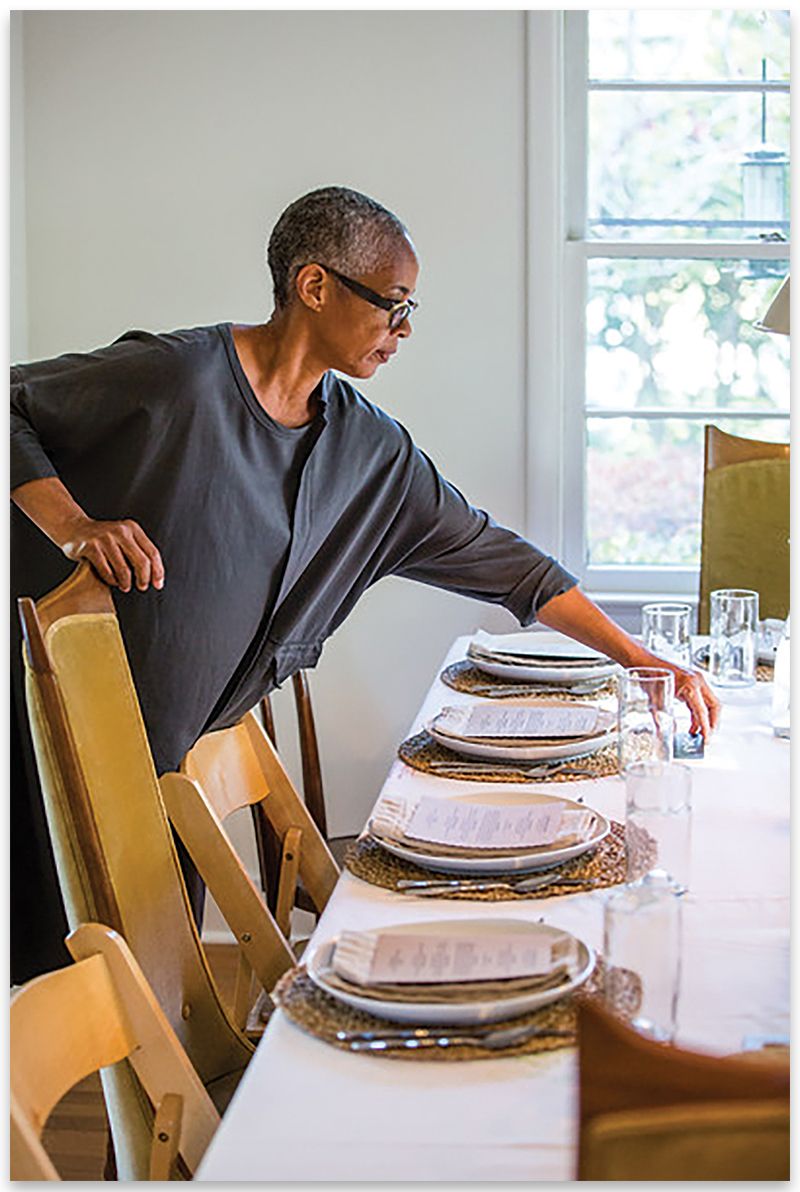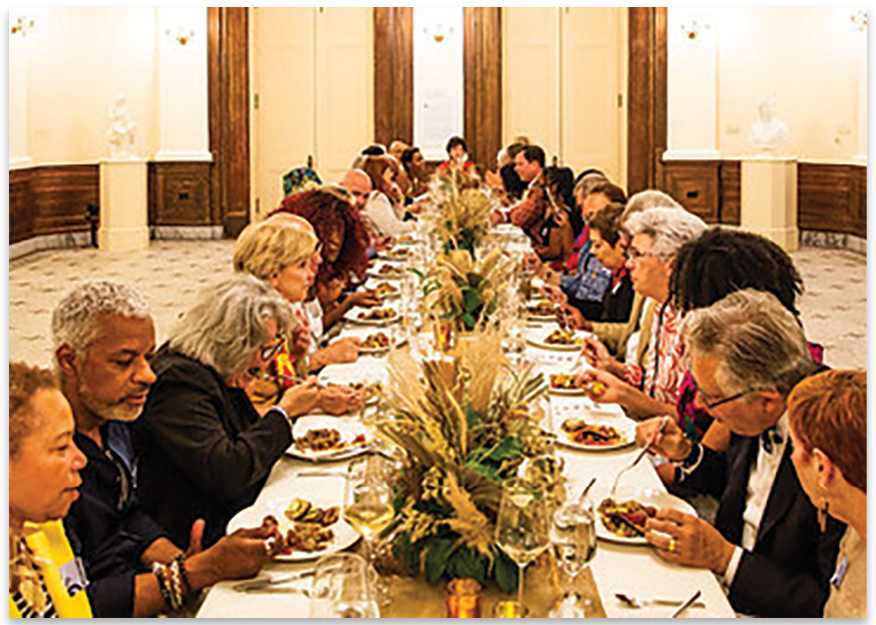She is relaunching Transformation Table with an event at next month’s Wine + Food festival

Founder Tina Singleton modeled her Transformation Table dinners on meals she hosted for expats and locals when she lived in Kabul, Afghanistan. “I saw the interaction and thought, ‘Wow, this is kind of cool,’” she says.
Tina Singleton’s aha moment was born out of a dark time. She’d only been in town a few months in 2016 when she attended a service at Mother Emanuel AME marking the one-year anniversary of the shootings that killed nine people there during Bible study. At the pulpit, Rev. Bernice King issued a challenge: “‘If you’re serious about change, you have to find ways to love and understand each other, despite all of the differences,’” Singleton recalls. “She said, ‘You have to get intimate. Go to each other’s homes and have dinner.’” That’s when the lightbulb went on: “I was like, ‘That’s it!’”
Singleton’s epiphany evolved into Transformation Table, a series of dinners she launched with the simple goal of creating space for people from different backgrounds, communities, and experiences to break bread together. By November of that year, she had organized her first event, inviting 10 strangers, a host, and a chef to share a meal and conversation. She went on to produce 39 more dinners before March 2020, when the pandemic hit the pause button on gatherings.
Now, Singleton is rebooting Transformation Table, beginning with a collaboration with the
Charleston Wine + Food festival next month. Billed as the “Community Table” event on March 5, this version will be a family-style meal featuring the food of five local chefs who hail from all over the globe. “What’s so great is that people kept asking me, ‘When are you starting the Transformation Table again?’” she says. “We need to get back to face-to-face contact and find those little points of connection that you always discover when you talk to somebody.”
Connecting through food has long been a thread in Singleton’s life. A self-described Air Force brat with roots in Sumter, she spent much of her adult life overseas, first as a Peace Corps volunteer and later in international development. “When I met my colleagues, the first thing they would do is invite me for a meal,” regardless of where she was in the world, she says. At her most recent post in Kabul, Afghanistan, she began hosting lunches on Fridays, inviting fellow expats and Afghans to help make a dent in the overflowing bounty of her garden. (Growing food is another passion of Singleton’s.) “I saw the interaction and thought, ‘Wow, this is kind of cool.’ We have these really interesting conversations with people from all over the world,” she says. “That was the seed; that’s how it got planted.”

While most Transformation Table dinners take place in private homes, the Gibbes Museum of Art hosted an expanded version in June 2019.
The first round of Transformation Table dinners happened largely through word of mouth. Participants filled out a form on the website, and Singleton used the information to assign tables (couples were welcome but not seated together). “I’m a little social engineer,” she says, with a wink. For hosts, the only requirement is “an open heart and space for 10 people.” She sought out chefs from other countries, in part because of her international background. “It’s also another way to acknowledge the diversity that we have in the Charleston community,” she says. “I ask the chef to think about a meal that reflects their food story, where they come from, and what is important for them to share about their culture and heritage through food.”
Singleton helped to guide the conversation at the table. “I usually would ask, ‘What was your favorite food memory growing up?’ Just by posing that one question, people start finding [things in common],” she says. “Honestly, it’s not rocket science.”Nonetheless, the results can be profound. Reshma Khan, founder of Shifa Free Clinic in Mount Pleasant, met Singleton through a mutual friend and offered to host a dinner. She recalls a very rich conversation about Islam and Chrisianity, as well as the hajib, which she wears. “It’s important to create space for people to ask whatever questions they want,” Khan says. “Many of the barriers are broken when you sit down with others.”
Singleton believes those sorts of discussions are needed now more than ever and hopes to have a slate of dinners—for the community and alumni—scheduled by the time the kickoff event rolls around next month. She’s also in the midst of restructuring the organization into a nonprofit with plans to hire a program director and train hosts so multiple people can facilitate dinners. Ultimately, she’d like to scale the model beyond Charleston. “The goal is to package it and get it out to other communities,” she says.
Seven years after King issued her challenge, Singleton has answered it, loud and clear. “Yes, they’re just dinners, but if you come away thinking differently about Muslims because you ate at a Muslim person’s home, the next time someone says something [unkind] about Muslims or there’s something [negative] on television or social media about them, you’re gonna think, ‘That wasn’t my experience,’” she says. “It’s those little connecting points with people that humanizes them and it allows you to humanize others.”
Watch a video of one Tina Singleton's dinners from 2019.